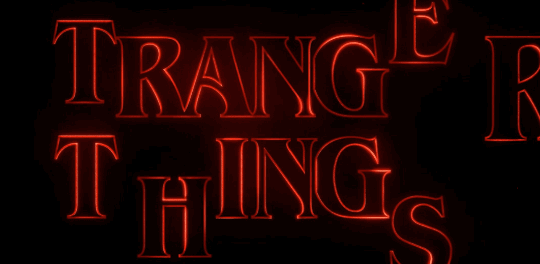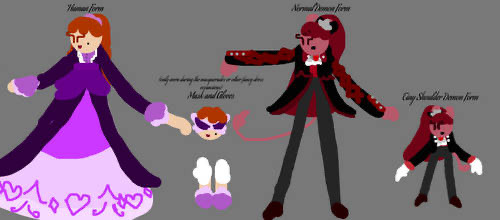#once upon a time at Bennington
Text
I wanted to listen to “Once Upon a Time at Bennington” but part of me finds it more and more unethical the more I hear about it. I mean I’m willing to accept Donna Tartt could have been a less than stellar person in college, whatever. And I guess she used quirks of people she knew for some characters. But why is the world entitled to private letters and the nearly 40-year-old random rumors about her bedroom activity? Then people are like “Ooooooo she got a lawyer. She’s tried to prevent it!” Prevent the unveiling of campus gossip about her and her college boyfriend from when she was like 20? Again, why are we even entitled to that?
And this is all assuming it’s even true— so much of it sounds like it’s from vague origin or that it started as conjecture. And, I mean, the nature of tabloid-y media is to want to cause a shock/stir.
#I think I feel guilty about stuff like this#I remember hearing a pretty scandalous rumor about someone at my school#it made me not like her and find her gross for years#then I actually talked to her and she was a super sweet and nice person#and I questioned everything#so maybe it’s true and maybe it’s not#but you’re risking someone’s whole rep on things you could never possibly confirm#donna tartt#the secret history#this was like half her lifetime ago#once upon a time at Bennington#once upon a time… at Bennington
20 notes
·
View notes
Text
#lisa howorth#yall im obsessed with donna tartt but what she did to lisa is really bad#the little friend#first heard about this in the last episode of the podcast#once upon a time at bennington#lisa and donna were friends#lisa told donna about the murder of her brother#and donna took the story without telling lisa
0 notes
Text
Am I the only one who’s convinced there’s a brideshead revisited thing going on in the TSH with richard and the twins? Like, richard projects his love onto camilla because he can’t be with charles? Maybe the paint fumes are getting to me, but I can’t be the only one:
#tartt IS attracted to men and richard is in many ways a reflection of her college experience#brideshead was also hugely influential to her style and aesthetic#I think once upon a time at bennington college melted my brain#the secret history#camilla macaulay#charles macaulay#richard papen#donna tartt#batshit literary analysis
15 notes
·
View notes
Text
Am I writing my Greek and Roman culture final paper while listening to "Once Upon a Time...at Bennington College" at work?
Maybe
#chaotic academia#academia aesthetic#dark academia#bookish#college#henry winter#francis abernathy#richard papen#camilla macaulay#charles macaulay#the secret history#once upon a time#bennington college#studyblr#college life#dark academia vibes#chaotic academic aesthetic
15 notes
·
View notes
Text
frankly if i weren't a lazy piece of shit i'd write an au where someone sets out to write about once upon a time at hampden, and ends up solving the two murders because everyone's like oh and these greek students they were fucking weird.
#the podcaster is just as annoying as the host of once upon a time at bennington#and there's like way too many parts where like judy or cloke's 4th wife are like yeah um im sure they did bunny in whatever#the podcaster just tracks marion down somehow and she just lits a ciggie and is like im sure henry did it and offed himself about it#maybe they all fucked who knows#and that's IT#cut fin
1 note
·
View note
Text
On current RL events
This isn't referring to anyone in particular, but as an older user, both on FR and in real life, I am thankful that Flight Rising is a *just* silly, colourful, grindy dragon game on the net. Flight Rising has been a social space and healthy diversion for countless players since its beginning.
It is older than Overwatch, Pokémon Go, Five Nights at Freddy's and the first Destiny game. It has seen three different US presidents and four British prime ministers. It's outlived Chester Bennington, Robin Williams, Carrie Fisher and Kobe Bryant, seen a pandemic and the creation of its vaccines, and now major wars and civil unrest. Many of its players have grown up, thrived, suffered, had kids of their own, or died. It has brought forth countless artists, writers and roleplayers; and become a space for personal growth and socialisation for many more who cannot express themselves offline due to censorship or bigotry due to their ethnicity, orientation or gender identity. On Flight Rising, they speak with the voices of dragons.
Countless players have come and gone, and clicking on a random dragon on the front page leads to an inactive lair more often than not, but that is ok. The site has served its purpose for them, once upon a time. But for many others it is a consistent and healthy escape from personal turmoil or major wars and pandemics and upheaval, with the upshot that it is too niche to be noticed by governments that are fond of banning major social media platforms. Sometimes an inactive player comes back just to see the familiar faces in their lair when everything else outside is horrible and bewildering.
Bottom line is, be kind. You never know when a silly, colourful, grindy little dragon game is someone's rock of familiarity and comfort when missiles are flying overhead, their loved ones are suffering, or they cannot hear anyone else tell them that they deserve to be free to be who they are. If you think someone might be in this situation, try reaching out with a kind word over DMs, or perhaps a sincere gift if they seem to have been recently online. It costs nothing but your time, but it can mean the world to them.
106 notes
·
View notes
Note
Two questions, sorry if they are odd.
1 - Do you have a favourite book?
2 - Is this brainrot solely on BG3, or has it expanded to encompass greater Baldur’s Gate series and general Forgotten Realms lore?
Not odd in the slightest!!! I loved answering these.
(lmao break b/c i wrote a novel exposing myself for knowing nothing)
1 - Favorite book is The Secret History by Donna Tartt, I found it in a thrift store in college and became obsessed. I try and reread it every fall, and I've listened to the Once Upon a Time... at Bennington College podcast twice all the way through (explores Tartt's time at college with Bret Easton Ellis, and the accusations that she put a bunch of real life people into the book without telling them [she def did] lololo).
2 - Funny you should ask because I've just spent a WHILE going over elven lore in Forgotten Realms, because I'm trying to nail down the character history for my High Elf Tav, and I'm up to my eyeballs and maybe even over my head with new information ahahhah. I'm working with a toddler's knowledge of the lore of this world at this point, since my primary goal for months was beating the game. So now I'm excited to be able to figure out what's going on in the world I just saved lmao. I've also never played D&D, so like, really actually a baby that knows nothing, and still hoping and praying a good campaign falls into my lap irl 😂 Scared to out myself for being such a noob but I have to kill the cringe right!! Definitely want to familiarize myself with the plots of the first 2 bg games too, though that may just be an extension of the bg3 brainrot for me hahah.
6 notes
·
View notes
Text
Fandoms I write for:
(I Only write x Male readers)
(smut is allowed!)
Lists: part 2, part 3, part 4 Part 5
Linkin Park:

- Chester Bennington
- Mike Shinoda
Supernatural:

- Sam Winchester
- Dean Winchester
- John Winchester
- Castiel
- Lucifer
Star Wars:

- Anakin Skywalker
- Obi-wan Kenobi
- Kylo Ren
- The Madalorian
One Piece:

- Zoro
- Sanji
- Mihawk
- Shanks
- Law
- Ace
- Smoker
- Rob Lucci
Final Fantasy XV:

- Noctis
- Ignis
- Gladio
- Prompto
- Ardyn
- Cor
The Legend of Zelda: Breath of the Wild

- Link
- Sidon
Monster High (Don't ask it was my childhood!): (Closed for now)

- Valentine Kieran
- Deuce Gorgon
- Jackson Jekyll/Holt Hyde
- Heath Burns
- Gil Webber
- Clawd Wolf
Rise of the Guardians: (Closed for now)

- Jack Frost
- North
ONCE UPON A TIME:(closed for now)

- Peter Pan
Stranger Things:

- Eddie Munson
- Peter Ballard(001)/Henry/Vecna
- Billy Hargrove
#male reader#x male reader#male x male#male x male reader#gay#linkin park#one piece#star wars#supernatural#final fantasy xv#final fantasy#bxb#the legend of zelda#zelda botw#monster high#x male y/n#rise of the guardians#jack frost#once upon a time#peter pan#lgbtq#stranger things
81 notes
·
View notes
Text
Once Upon a Time…at Bennington College podcast cured my mental illness. I'm actually normal I just need media that caters to my extremely specific interests
7 notes
·
View notes
Text


Once upon a time, two entities were reincarnated.
One, the living embodiment of evil.
The other, the living enbodiment of good.
A literal angel and devil, hiding among the living in flesh disguises, with the power to incite their element when in their true forms.
One embraced her powers as an evil temptress, inciting evil and tempations wherever she went. Everyone knew who she was, and if they had the hearts to match, they certainlly didn't mind her influence.
The other went into hiding, fearful of what he was shown to be capable of. After all, involuntairily brainwashing people to be nice, honest, kind, and truthful never seems to have good PR with it. Only his butler knew of his secret.
The two met as prophecized, with the evil deity unaware of the good deity...until, fed up, his powers awakened without warning one fateful party night.
And thus, a friendship lasting for eons was formed from the ashes of a rivalry. For when you're only one of two people with powers, it's only natural that opposites attract....
***
In the weapons drawn universe itself, I HC that Lord Tippet is the living enbodiment of good, but for understandable reasons, prefers that persona to be as secret as possible.
Kinda hard to do when the living enbodiment of evil is around, but he manages nonetheless.
Also attached is my Raven Nevermore/The Narrator ref for comparison.
***
Narrator/Lady Raven: The Devil in the Details-WD Host Ref Red.
Lord Tippet: An Angel in Plain Sight- WD Host Ref Red.
Bennington: Unlikely Friends-Bennington Weapons Drawn Host Ref
Duke Wesleyham: A Lord's Rival- Weapons Drawn Host Ref
Lord Angel Tippet: Lord Angel Tippet, The Living Enbodiment Of Good
© 2023 BooLooCrew
#booloojack#booloofanart#boolooart#weapons drawn#lord tippet#weapon's drawn#weapons drawn jackbox#jackbox games#jackbox#booloo favorites#biblically accurate angel#lord tippet angel au#angel#living enbodiment of evil#living enbodiment of good#good#evil#devil#seraph#the narrator weapons drawn#the narrator weapon's drawn#lord tippet weapon's drawn#lord tippet weapons drawn
7 notes
·
View notes
Text
This is my last point on the Bennington podcast (hopefully).
Who else has read Stephen King’s memoir? It’s one of my favorite books in existence (even if I don’t agree on every single bit of advice). Anyway, like half that book is on the parts of his real life he lifted for his novels. He directly discusses the 3 people he knew who inspired Carrie and her mom. And I felt like I was rereading It at parts of his memoir. He talks about how he didn’t like college creative writing because everyone is artsy fartsy and fake-profound while he just wanted to hear good stories. And his whole experience with his class was used almost exactly for Bill Denbrough’s— who is is a horror writer!— college experience. He describes his favorite old movie theater which is SO similar to the movie theater scene in It, and his thoughts on it were the kids’ thoughts. And it just goes on and on.
Why can Stephen King write an acclaimed memoir on how his fiction collides with reality, without people treating him as interchangeable with Bill or acting like he’s a fraud for not designing Carrie from scratch. Nobody treats Bill as literally Stephen King even though he’s clearly lifted from his own experience. And it’s framed so weirdly when Tartt does the same stuff with Richard?
There are more examples. Leigh Bardugo wrote Ninth House as someone who went to Yale AND was in a society (Wolf’s Head). Bardugo has said she absolutely loved Yale and has great memories from there, but did feel like there’s a level of privilege and immorality in academia circles that she wanted to comment on.
“Reading ‘Ninth House,’ people might think I have some kind of bone to pick with Yale,” Bardugo said. “And I suppose I do. I have a bone to pick with all institutions that embody a particular kind of privilege. But I also loved my experience at Yale. And I hope that comes through … there’s a reason we long for these hallowed halls and these ivy-covered walls.”
Like ultimately it seems to me like Ninth House and The Secret History tackle dark academia similarly because each the author is open about liking her area of study and her college experience, but also open about how things can easily go too far in these closed-off academic environments.
Not to lose my point. In a way, I just feel like Tartt’s lack of a public presence and commentary on her work has been used against her uncharitably. And I’m really genuinely interested in if someone can tell me the difference between her and King/Bardugo. Why is King seen as cool for using his hometown and his issues with college writing courses to form Bill who shares King’s own opinions? Why is it interesting that Bardugo put a real secret society that she was actually in into her book? But then it seems like a huge shock and betrayal that Tartt may have been looking around her own Greek class for minor inspirations? Is it the negative framing? Because, again, King wrecked his unnamed creative writing teachers. Bardugo’s book openly states that it’s absurd that Wolf’s Head views themselves as champions of civil rights when they were the last society to accept women. Please, someone tell me the difference.
#the secret history#donna tartt#tsh#once upon a time… at Bennington#richard papen#once upon a time at bennington#bennington podcast
8 notes
·
View notes
Text
0 notes
Text
i really recommend listening to the podcast Once Upon A Time in Bennington season 2 for The Secret History lovers. I think the second half of the 14 episodes focus more on Donna Tartt but I recommend listening to all episodes because you can see so many influences from the other notable people who were in Donna's circle (Brett E. Ellis, author of Less than Zero, American Psycho, and A Fortress of Solitude; Jonathan Lethem, author of Motherless Brooklyn and MacArthur Fellow). The influence of Vermont and of Bennington the college make their way into TSH heavily too. Im only on episode 5, but 5/5 so far!
#the secret history#donna tartt#the goldfinch#american psycho#brett e ellis#brett ellis#jonathan lethem#motherless brooklyn#macarthur fellow#classical literature#campus literature#dark academia#dark academia books#dark academic#literature podcast#podcast
11 notes
·
View notes
Text
in my dream world diane is brought back into the frasier reboot to support (hopefully still) goth freddie crane. i am not even being facetious.
diane, once upon a time, thought she was counter-culture (i emphasize thought) -- this is, in my interpretation, why she attended bennington which was perceived as a ‘hippie school’ in the early 70′s.
so, if she met a goth freddie crane he wouldn’t be made fun of like frasier made fun of him. she’d be like: oh, this is cool. i get it. i like gothic literature myself - this style derives from, etc. etc. and who knows how he’d take to that but i just know that when freddie called the talking dog/eddie commercial on tv “goth” diane would be like: you know, what? that’s right. and cite faust’s goth influences + specifically when mephistopheles took the form of a dog to convince faust to sell his soul for knowledge.
frasier said freddie wasn’t right to call talking dogs goth? literally so culturally incorrect, mr. ivy league. don’t let your jealousy for a canine rage away the fact that you DO know literature and can teach more gothic lore to your son
2 notes
·
View notes
Text
“The Mountain” by William Ellery Channing (1818–1901) (1), published in Ralph Waldo Emerson, comp. (1803–1882) (2). “Parnassus: An Anthology of Poetry”. 1880.
Once we built our fortress where you see
Yon group of spruce-trees sidewise on the line
Where the horizon to the eastward bounds,—
A point selected by sagacious art,
Where all at once we viewed the Vermont hills,
And the long outlines of the mountain-ridge,
Ever-renewing, changeful every hour.
Strange, a few cubits raised above the plain,
And a few tables of resistless stone
Spread round us, with that rich delightful air,
Draping high altars in cerulean space,
Could thus enchant the being that we are!
Those altars, where the airy element
Flows o’er in new perfection, and reveals
Its constant lapsing (never stillness all),
As a mother’s kiss, touching the bright spruce-foliage;
And in her wise distilment the soft rain,
Trickling below the sphagnum that o’erlays
The plateau’s slope, is led to the ravine,
And so electrified by her pure breath,
As if in truth the living water famed
Recorded in John’s mythus, who first dashed
Ideal baptism on Jordan’s shore.
In this sweet solitude, the Mountain’s life,
At morn and eve, at rise and hush of day,
I heard the wood-thrush sing in the white spruce.
The living water, the enchanted air
So mingling in its crystal clearness there
A sweet, peculiar grace from both,—this song,
Voice of the lonely mountain’s favorite bird!
These steeps inviolate by human art,
Centre of awe, raised over all that man
Would fain enjoy, and consecrate to one,
Lord of the desert and of all beside,
Consorting with the cloud, the echoing storm,
When like a myriad bowls the mountain wakes
In all its alleys one responsive roar;
And sheeted down the precipice, all light
Tumble the momentary cataracts,—
The sudden laughter of the mountain-child.
On the mountain-peak
I marked the sage at sunset, where he mused,
Forth looking on the continent of hills;
While from his feet the five long granite spurs
That bind the centre to the valley’s side,
(The spokes from this strange middle to the wheel)
Stretched in the fitful torrent of the gale
Bleached on the terraces of leaden cloud
And passages of light,—Sierras long
In archipelagoes of mountain sky,
Where it went wandering all the livelong year.
He spoke not, yet methought I heard him say,
“All day and night the same; in sun or shade,
In summer flames, and the jagged, biting knife
That hardy winter splits upon the cliff,—
From earliest time the same.
One mother and one father brought us forth
Thus gazing on the summits of the days,
Nor wearied yet when generations fade.
The crystal air, the hurrying light, the night,
Always the day that never seems to end,
Always the night whose day does never set;
One harvest and one reaper, ne’er too ripe,
Sown by the self-preserver, free from mould,
And builded in these granaries of heaven,
This ever-living purity of air,
In these perpetual centres of repose
Still softly rocked.”
Illustration: Postcard of Old Bennington, Vermont
Notes:
(1) William Ellery Channing (April 7, 1780 – October 2, 1842) was the foremost Unitarian preacher in the United States in the early nineteenth century and, along with Andrews Norton (1786–1853), one of Unitarianism's leading theologians. Channing was known for his articulate and impassioned sermons and public speeches, and as a prominent thinker in the liberal theology of the day. His religion and thought were among the chief influences on the New England Transcendentalists although he never countenanced their views, which he saw as extreme. His espousal of the developing philosophy and theology of Unitarianism was displayed especially in his "Baltimore Sermon" of May 5, 1819, given at the ordination of the theologian and educator Jared Sparks (1789–1866) as the first minister of the newly organized First Independent Church of Baltimore. Channing died in Old Bennington, VT. There is a cenotaph to him in the graveyard of the Old First Church seen in the postcard above. Robert Frost (1874-1963) (1a) is also buried there.
(1a) Robert Lee Frost (March 26, 1874 – January 29, 1963) was an American poet. His work was initially published in England before it was published in the United States. Known for his realistic depictions of rural life and his command of American colloquial speech, Frost frequently wrote about settings from rural life in New England in the early 20th century, using them to examine complex social and philosophical themes. Frequently honored during his lifetime, Frost is the only poet to receive four Pulitzer Prizes for Poetry. He became one of America's rare "public literary figures, almost an artistic institution". He was awarded the Congressional Gold Medal in 1960 for his poetic works. On July 22, 1961, Frost was named poet laureate of Vermont.
(2) Ralph Waldo Emerson (May 25, 1803 – April 27, 1882), who went by his middle name Waldo,[8] was an American essayist, lecturer, philosopher, abolitionist, and poet who led the transcendentalist movement of the mid-19th century. He was seen as a champion of individualism and a prescient critic of the countervailing pressures of society, and his ideology was disseminated through dozens of published essays and more than 1,500 public lectures across the United States.
Emerson gradually moved away from the religious and social beliefs of his contemporaries, formulating and expressing the philosophy of transcendentalism in his 1836 essay "Nature". Following this work, he gave a speech entitled "The American Scholar" in 1837, which Oliver Wendell Holmes Sr. (2a) considered to be America's "intellectual Declaration of Independence." Emerson wrote most of his important essays as lectures first and then revised them for print. His first two collections of essays, “Essays: First Series” (1841) and “Essays: Second Series” (1844), represent the core of his thinking. They include the well-known essays "Self-Reliance", "The Over-Soul", "Circles", "The Poet", and "Experience." Together with "Nature", these essays made the decade from the mid-1830s to the mid-1840s Emerson's most fertile period. Emerson wrote on a number of subjects, never espousing fixed philosophical tenets, but developing certain ideas such as individuality, freedom, the ability for mankind to realize almost anything, and the relationship between the soul and the surrounding world. Emerson's "nature" was more philosophical than naturalistic: "Philosophically considered, the universe is composed of Nature and the Soul." Emerson is one of several figures who "took a more pantheist or pandeist approach by rejecting views of God as separate from the world."
He remains among the linchpins of the American romantic movement, and his work has greatly influenced the thinkers, writers and poets that followed him. "In all my lectures," he wrote, "I have taught one doctrine, namely, the infinitude of the private man." Emerson is also well known as a mentor and friend of Henry David Thoreau, a fellow transcendentalist.
(2a) Oliver Wendell Holmes Sr. (August 29, 1809 – October 7, 1894) was an American physician, poet, and polymath based in Boston. Grouped among the fireside poets, he was acclaimed by his peers as one of the best writers of the day. His most famous prose works are the "Breakfast-Table" series, which began with “The Autocrat of the Breakfast-Table” (1858). He was also an important medical reformer. In addition to his work as an author and poet, Holmes also served as a physician, professor, lecturer, inventor, and, although he never practiced it, he received formal training in law.
Born in Cambridge, Massachusetts, Holmes was educated at Phillips Academy and Harvard College. After graduating from Harvard in 1829, he briefly studied law before turning to the medical profession. He began writing poetry at an early age; one of his most famous works, "Old Ironsides", was published in 1830 and was influential in the eventual preservation of the USS Constitution. Following training at the prestigious medical schools of Paris, Holmes was granted his Doctor of Medicine degree from Harvard Medical School in 1836. He taught at Dartmouth Medical School before returning to teach at Harvard and, for a time, served as dean there. During his long professorship, he became an advocate for various medical reforms and notably posited the controversial idea that doctors were capable of carrying puerperal fever from patient to patient. Holmes retired from Harvard in 1882 and continued writing poetry, novels and essays until his death in 1894.
Surrounded by Boston's literary elite—which included friends such as Ralph Waldo Emerson, Henry Wadsworth Longfellow, and James Russell Lowell—Holmes made an indelible imprint on the literary world of the 19th century. Many of his works were published in The Atlantic Monthly, a magazine that he named. For his literary achievements and other accomplishments, he was awarded numerous honorary degrees from universities around the world. Holmes's writing often commemorated his native Boston area, and much of it was meant to be humorous or conversational. Some of his medical writings, notably his 1843 essay regarding the contagiousness of puerperal fever, were considered innovative for their time. He was often called upon to issue occasional poetry, or poems written specifically for an event, including many occasions at Harvard. Holmes also popularized several terms, including Boston Brahmin and anesthesia. He was the father of Oliver Wendell Holmes Jr., who would become a justice on the Supreme Court of the United States.

0 notes
Text
fun fact about once upon a time at bennington, but matt jacobsen whose scary uwu remarks are being used in it and the article surrounding it hates it so that should tell you something.
#a couple years back matt and his wife were interviewed by another bennington grad who was their friend#and he absolutely feels the podcast is a sham and doesnt like talking about donna at all#like i dont think theyre friends by any means but cropping up someone's statemets to create a narrative... about one singular individual#also mind you its not “legal” or whatveer#this guy and his wife have more money than donna#his wife is a holywood exec#i do think its just not... that the podcast only exists to spread lies basically
2 notes
·
View notes